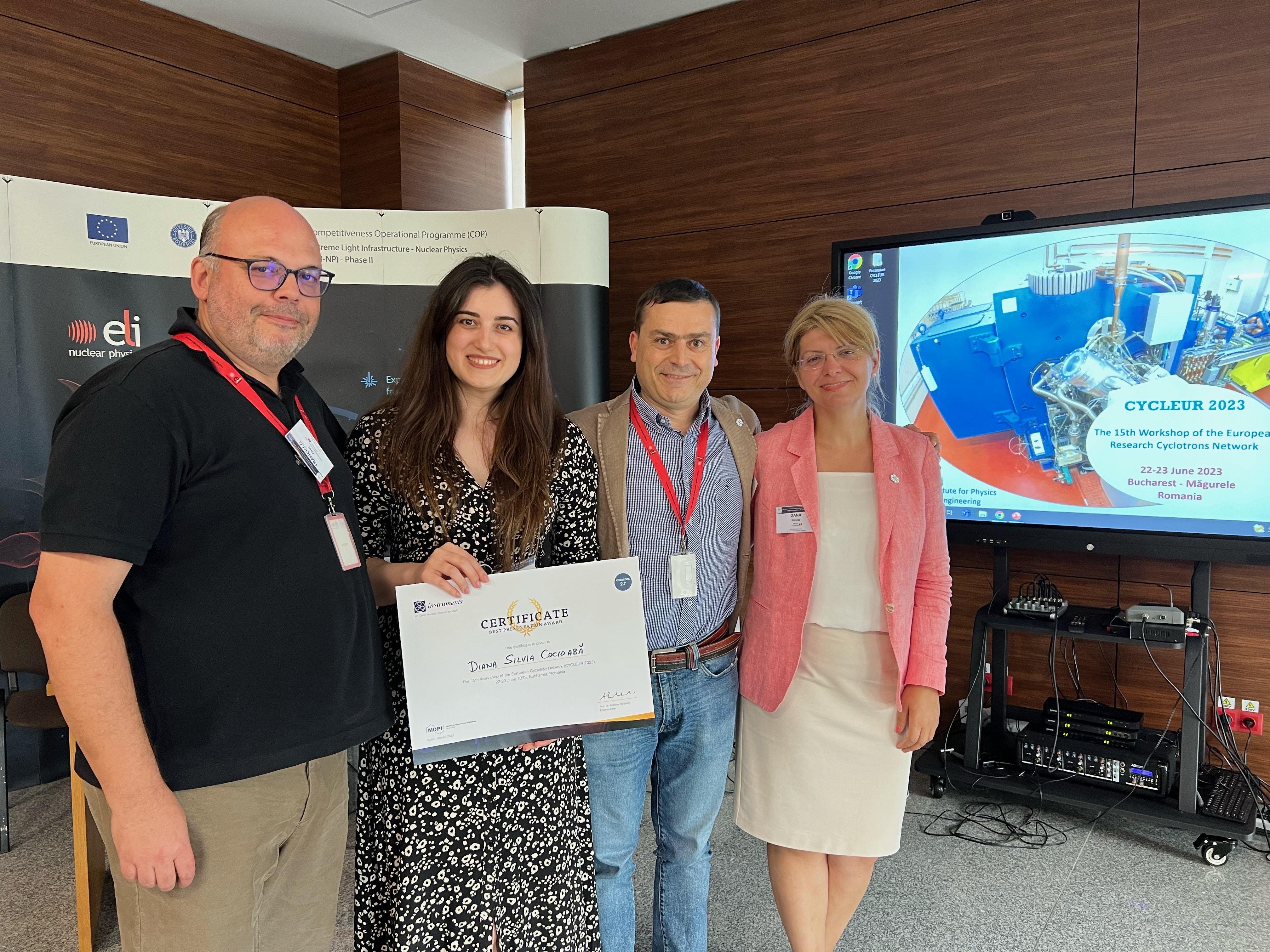Instruments Best Presentation Award at the 15th Workshop of the European Cyclotron Network (CYCLEUR 2023)—Winner Announced
We are pleased to announce the winner of the Best Presentation Award, which Instruments (ISSN: 2410-390X) sponsored at the 15th Workshop of the European Cyclotron Network (CYCLEUR 2023), held from 22 to 23 June 2023, Bucharest, Romania. Congratulations Silvia-Diana Cocioabă!

“Cyclotron production of 64Cu and 89Zr using solid targets” by Silvia-Diana Cocioabă
The evolution of nuclear medicine has boosted the development of medical radioisotopes and radiopharmaceuticals production, with the help of which, quantitative images are acquired. These allow for the calculation of the quantities of radioactive material needed to efficiently and safely administer to patients for diagnosis and/or treatment.
At the Radiopharmaceutical Research Center (CCR) within IFIN-HH, emerging medical radioisotopes are produced, aimed at optimizing the production processes of radiopharmaceutical drugs, thus bringing together international interest in the development of nuclear medicine on a modern basis. The variable energy TR-19 (ACSI) cyclotron and ALCEO solid target irradiation and radiochemical processing system were used for radiometals production.
64Cu is of particular interest due to its “triple” emissions of Auger electrons, β+ (17.86%) and β− (39.03%). 64Cu can be used as an imaging and/or theragnostic radioisotope in different types of cancer and also for various diseases including arteriosclerosis and Alzheimer's disease.
PET imaging with 89Zr-based agents has been a dynamic field of research, and radiopharmaceuticals based on 89Zr-labeled antibodies are intended for use in the early detection, screening and monitoring of malignant tumors, such as breast, prostate, ovarian and intestinal cancer.
In this talk, I presented our group’s results regarding the production of the two above-mentioned radioisotopes. The processes involve the irradiation of natY foils and electrodeposited 64Ni targets, respectively, via 89Y(p,n)89Zr and 64Ni(p,n)64Cu nuclear reactions. Irradiations were conducted on a fully automated solid target irradiation system. The irradiated targets were dissolved and processed to obtain pharmaceutical-grade products. The results were in good agreement with the simulations and prove that the processes of pharmaceutical-grade production of radiometals and radiopharmaceuticals can be successfully carried out at the Radiopharmaceutical Research Centre (CCR).